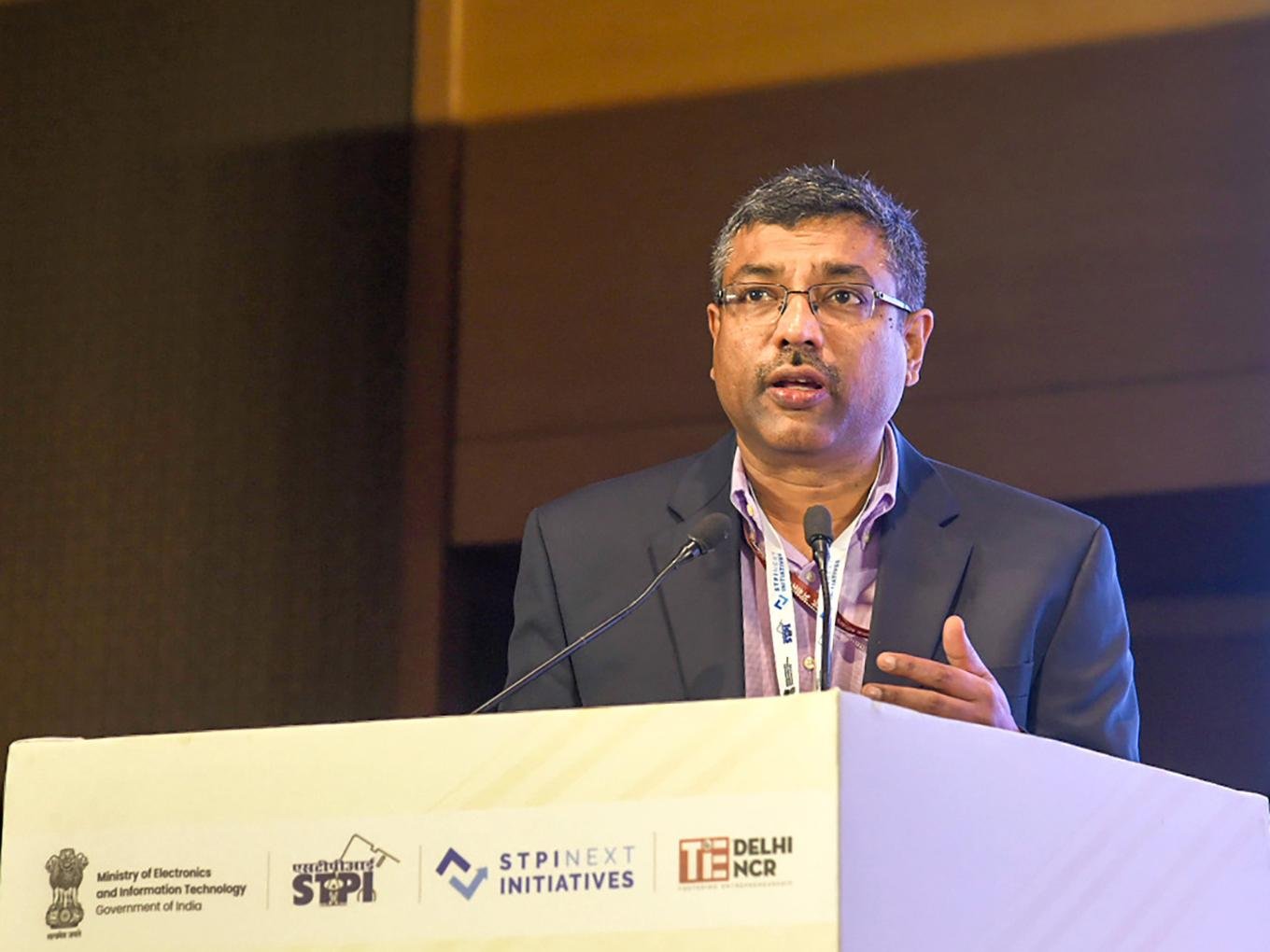Summary Points:
- MeitY calls for critical data to be stored within India to strengthen digital resilience.
- TCS launches SovereignSecure Cloud, compliant with India’s data protection law.
- Rs 10,372 Cr IndiaAI Mission to fund four AI startups building native LLMs.
- India’s chip demand projected to reach USD 110 Bn by 2030; 85,000 semiconductor professionals to be trained.
- MeitY Startup Hub partners with Startup Policy Forum to support deeptech innovations.
India Needs Local Data Storage, Says MeitY Secretary
At TCS’s Accelerating India conference, MeitY Secretary S. Krishnan stressed the urgent need for a resilient digital ecosystem where critical data is stored within India.
“We generate millions of terabytes of data, often stored abroad. For national resilience, storing crucial data locally is essential,” Krishnan said.
This comes as TCS launched its SovereignSecure Cloud, a platform developed entirely in India. The cloud is designed to comply with the Digital Personal Data Protection Act, which mandates domestic storage of sensitive data in certain cases.
ALSO READ: Apple Expands Retail Footprint in India: New Stores Coming to Noida & Pune
Why TCS Sovereign Cloud Matters
The TCS platform is a step toward digital sovereignty, allowing India to:
- Reduce dependency on foreign servers
- Comply with evolving data protection norms
- Enable local innovation on secure cloud infrastructure
Though some hardware components are still imported, TCS is exploring full indigenisation as India’s semiconductor ecosystem matures.
India’s Digital Economy Is Surging
Krishnan noted India’s digital economy has grown from 6–7% to nearly 20% of GDP and continues to accelerate.
This growth demands strong digital foundations—secure cloud storage, reliable infrastructure, and skilled talent. Local data storage isn’t just a compliance issue—it’s a strategic enabler for innovation, job creation, and economic expansion.
IndiaAI Mission: Rs 10,372 Cr for Homegrown AI Models
As part of India’s deeptech push, the government launched the IndiaAI Mission with an allocation of Rs 10,372 Cr (approx. USD 1.24 Bn).
- 200+ GenAI startups already active in India
- 70% focus on enterprise AI
- Rs 1,200+ Cr in funding raised by AI startups since 2020
Four startups—Sarvam AI, Soket AI Labs, Gnani.ai, and Gan.ai—are reportedly set to receive funding to develop indigenous large language models (LLMs) in Indian languages.
ALSO READ: 10 Daily Micro Habits That Skyrocket Startup Growth
AI Job Loss Fears? Not for India
Addressing fears of AI-related job losses, Krishnan explained India’s structure is different from the West.
“We don’t have as many white-collar jobs to lose,” he said.
“AI can boost productivity in industries like manufacturing and open new job avenues.”
This aligns with the government’s broader view—AI should be seen as a productivity enhancer, not a threat.
India’s Semiconductor Vision: USD 110 Bn by 2030
To support the growing digital and AI infrastructure, India is rapidly building its semiconductor capabilities.
- Current demand: USD 45–50 Bn
- Projected demand by 2030: USD 100–110 Bn
- Workforce goal: Train 85,000 professionals in semiconductor design and fabrication
The Centre has already approved key players like:
- Tata Electronics
- Kaynes Semicon
- Micron Technology
- Suchi Semicon
- CG Power
Four of these are OSAT companies, and one will operate as a fabrication (fab) facility.
Nano Electronics Centres Fueling Innovation
To meet talent needs, MeitY has set up nano electronics centres at IISc Bengaluru and several IITs.
These centers:
- Drive semiconductor R&D
- Help develop a pipeline of skilled engineers
- Support design-linked incentive (DLI) schemes
Krishnan added that India already contributes 20% of the global semiconductor design workforce.
MeitY’s DeepTech Collaboration
MeitY Startup Hub (MSH) has partnered with the Startup Policy Forum (SPF) to boost innovation across:
- Artificial Intelligence
- Semiconductors
- Deeptech verticals
SPF will help MSH with:
- Joint policy research
- Stakeholder engagement
- Scaling startup ecosystems
“This collaboration will position India as a global technology leader,” said Panneerselvam Madanagopal, CEO of MSH.
India’s tech transformation is no longer a future vision—it’s unfolding now.
By anchoring critical data within national borders, investing in AI innovation, and scaling semiconductor capacity, the country is laying the groundwork for true digital independence.



